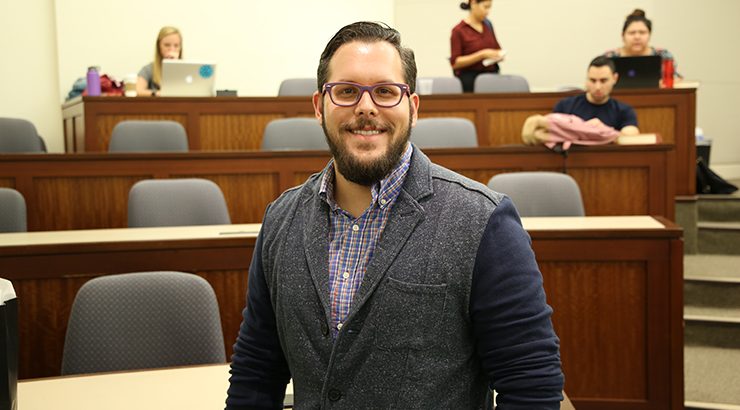
Chapman Law LL.M. Alumnus is Thriving in Rapidly-Evolving Music Law Industry
May 10, 2017
When Chapman University Dale E. Fowler School of Law alumnus Christopher Navarro (LL.M. ’11) began law school in North Carolina, he had no idea that entertainment law was a field of choice. He only knew that his passion for music would get him into the music industry. So when he learned about Chapman University Dale E. Fowler School of Law’s LL.M. in Entertainment Law, Navarro knew his next move was to head to California.
“In law school, I knew I wanted to work in entertainment, so I was always trying to figure out a way to expand that knowledge,” Navarro said. “I was happy to find Chapman because it helped open a lot of doors.”
As an LL.M. student at Chapman, Navarro participated in the Entertainment Contracts Law Clinic, working with independent filmmakers to release their works. He also landed an internship at Rhino Records in Burbank, his first professional step into a career in music law.
“Chapman was really helpful in providing that specialized entertainment knowledge foundation and opening the doors that allowed me to get into Rhino,” he said.
Immediately after finishing the LL.M. program, he decided to strike out on his own, opening a boutique entertainment law firm that partnered with independent artist and music studios to file copyright applications in Los Angeles and Miami. After a successful year of solo practice, his growing network led him to an opportunity with Universal Music Latin Entertainment’s legal affairs team, where he has worked since 2013.
Now Director of Business and Legal Affairs, Navarro and his team handle recording agreements, entertainment income agreements, releases of products, copyright infringements, and what Navarro coins as new “business development deals,” which include matters such as sponsorships, endorsements, touring, product integration, music festivals, and events.
Navarro began his music career as a DJ in middle school. By the time he reached high school, he established a formal business and regularly worked at parties, quinceañeras, and even radio stations.
In a rapidly-changing industry that has most recently seen significant increases in music streaming and the rise of festivals and corporate sponsorships, Navarro anticipates that he will face new challenges and opportunities in the coming years.
“As the music industry moves forward and traditional revenue from album sales decrease, attorneys are going to have to become more creative and entrepreneurial to determine how labels and entertainment companies can help artists monetize their assets.”

